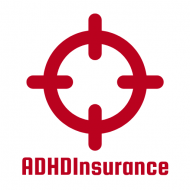Attention Deficit Hyperactivity Disorder (ADHD) is a neurodevelopmental disorder characterized by persistent patterns of inattention, hyperactivity, and impulsivity. As society becomes more informed about mental health issues, the question of whether ADHD constitutes a disability, particularly in the context of insurance, has gained prominence. Understanding how ADHD is classified and the implications for insurance coverage is essential for individuals seeking support and resources.
Exploring the intersection of ADHD and disability status involves delving into legal definitions and the varying interpretations across different jurisdictions. In many cases, ADHD can be recognized as a disability under the Americans with Disabilities Act (ADA) if it substantially limits one or more major life activities. This recognition is pivotal for individuals who may require accommodations in educational settings, workplaces, or, importantly, access to healthcare services. Insurance companies often rely on these definitions to determine coverage options, eligibility for benefits, and potential treatment protocols for those diagnosed with ADHD.
Understanding ADHD: Disability Status and Insurance Implications
The classification of ADHD as a disability significantly influences the level of support individuals may receive from insurance providers. Under the ADA, ADHD is recognized as a disability when it adversely affects one’s ability to perform daily tasks, such as concentrating, completing work assignments, or maintaining social relationships. This classification facilitates access to various accommodations, but it can also lead to confusion regarding insurance benefits, as not all policies explicitly include ADHD under their definition of disabilities.
Insurance companies may vary in their approach to ADHD, often requiring comprehensive documentation from healthcare providers to establish the necessity of treatment. This documentation is critical in ensuring that individuals receive appropriate care, including therapy, medication, and other interventions. However, navigating this process can be challenging, as some insurers may impose strict criteria that can lead to denials of coverage for ADHD-related treatments, leaving many individuals uncertain about their rights and benefits.
When examining insurance policies, it is important for individuals with ADHD to understand the specific language used within their coverage agreements. Many health insurance plans are now more attuned to mental health conditions, including ADHD, and may provide coverage for counseling, behavioral therapy, and medications. However, the extent of this coverage can vary significantly, and individuals are often encouraged to carefully review their policy documents to identify any exclusions or limitations concerning ADHD treatment.
Moreover, understanding state and federal regulations surrounding mental health parity is crucial for individuals seeking coverage for ADHD. The Mental Health Parity and Addiction Equity Act requires that insurance coverage for mental health and substance use disorders be comparable to that for physical health conditions. This legislation can enhance the likelihood of receiving coverage for ADHD, but challenges remain, particularly when it comes to obtaining prior authorization for treatments. Individuals advocating for their rights may need to engage in persistent communication with their insurers to ensure they receive the services and support they need.
In summary, ADHD can be classified as a disability under various legal frameworks, which shapes the insurance landscape for those affected. While progress has been made in recognizing and addressing mental health conditions within insurance policies, challenges persist in terms of coverage and access to care. Individuals with ADHD must navigate a complex system that requires vigilance and advocacy to secure the support they need. As awareness and understanding of ADHD continue to evolve, ongoing dialogue and policy refinement will be essential to ensure equitable access to necessary healthcare services.
Dr. Jonathon Preston is a respected mental health specialist dedicated to helping individuals overcome challenges. With advanced training in psychology and decades of experience in the mental health field.
